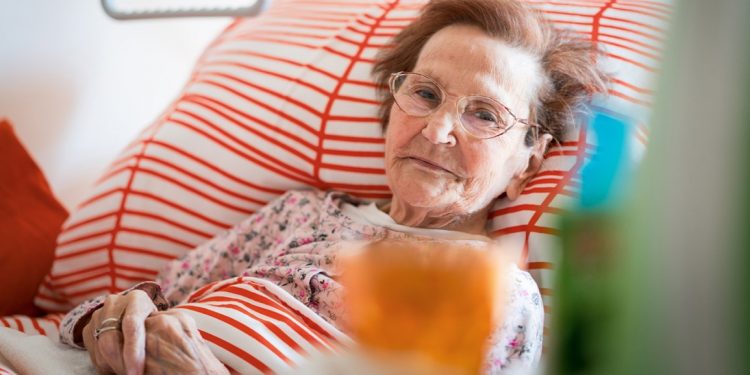Pneumonia Guide for the Elderly

Pneumonia is an infection of the lungs caused by various pathogens, or organisms. Different pathogens are responsible for different kinds of pneumonia, but for the elderly beyond the age of 65, the main causative agents are Streptococcus pneumoniae, certain respiratory viruses and Haemophilus influenzae.
In pneumonia, the air sacs in the lungs become inflamed and become filled with fluid, resulting in difficulty breathing, and reduced oxygen levels in the blood, since the air sacs have capillaries responsible for oxygen diffusing into the blood. The severity of pneumonia can range from mild symptoms to potentially being life-threatening.
If you feel as though you or someone you know has symptoms of pneumonia, you or that person should visit a physician immediately to get properly diagnosed. We recommend a Chest specialist in Lahore, if they are accessible to you.
Transmission
Pneumonia caused by bacterial and viral agents can spread through direct contact with someone who is already infected and their fluids, as well as through the direct spread of the bacteria and virus through the air. The most common classification of pneumonia is community-acquired pneumonia, which means that it is acquired outside of healthcare facility, as opposed to being contracted within such a facility. The latter is much more likely to be life-threatening since the causative agents are more likely to be antibiotic- and antiviral-resistant.
Symptoms
The symptoms of pneumonia vary from case to case and with the kind of causative agent responsible for the condition. Here, we list some of the most common symptoms associated with pneumonia in elderly patients.
- Pain in the chest area, that is aggravated by deep breathing and coughing
- Fever, sweating and chills
- Lowered body temperature
- A wet cough with excessive phlegm
- Shortness of breath
- Disorientation
- Loss of appetite
- Fatigue and lethargy
- Vomiting and nausea
- Fingernail beds and lips may appear bluish in colour due to a lack of oxygen
Pneumonia caused by viral agents tends to have early symptoms that are similar to symptoms presented during an influenza infection.
In many cases, elderly people that have other serious illnesses or weakened immune systems may still only have mild symptoms of pneumonia, showcasing that there is no certainty in how severe pneumonia can be or become.
Causes
As we’ve talked about before, there are many causative agents that can result in pneumonia. However, there are certain factors that make the elderly more susceptible to developing the condition.
- As one’s age increases, the strength of the immune system decreases, making it harder to fight off an infection.
- Development or presence of other lung-related conditions can sometimes further develop into pneumonia due to a weakened immune system.
Treatment
In order to confirm the diagnosis of pneumonia, you usually have to have blood tests and chest scans done. Once confirmed, and the cause identified, relevant treatment options will be prescribed.
If the cause is bacterial, you will definitely be prescribed antibiotics to combat the infection. If it is antiviral, you may be prescribed antiviral medication, though this is not necessary.
In general, you will have to rest a lot, change your diet to include more nutritious food and more fluids. If the pain associated with breathing is too great, you may also be prescribed pain medication.
If the condition is too severe, you may need special care and oxygen therapy, which might involve a special healthcare facility.
If you’re concerned about developing severe pneumonia, you should visit a professional as soon as possible. We suggest you look up these Chest specialist in Karachi, if you reside in the area.






